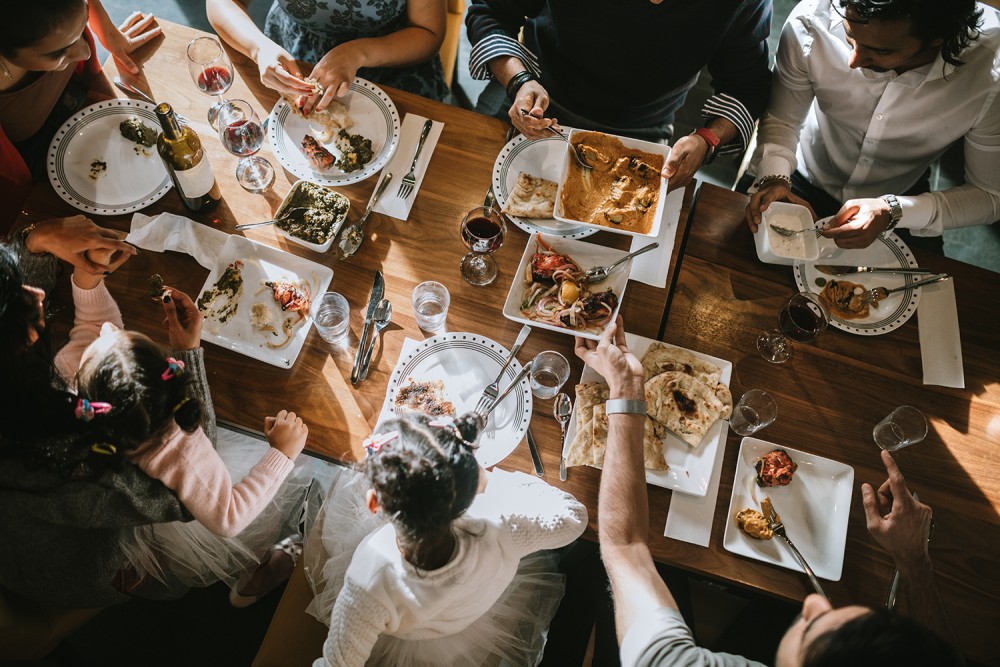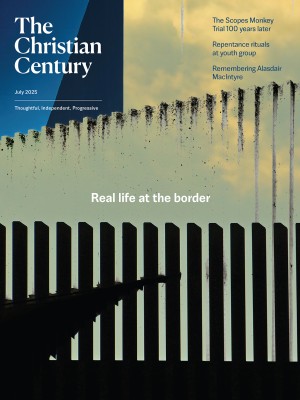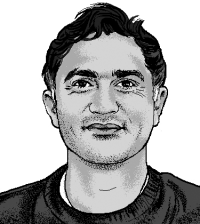Becoming manna
There’s a connection between a desire to care and the offer of food. We’re committed to each other’s survival.

Photo by RyanJLane / E+ / Getty
I like food. I like Bible stories about food. The psalmist also likes stories about food. In the middle of the book, in Psalm 78, the author recounts the mighty work of God—a litany of glorious deeds and wonders, including the provision of food, of manna for the Israelites during their desert wanderings. The psalmist returns to the events narrated in Exodus 16 and Numbers 11—divine care for hungry people. That memory becomes a prayer of thanksgiving, a lyric in the song: “God commanded the skies above and opened the doors of heaven . . . and gave them the grain of heaven” (Ps. 78:23–24). God hears the people’s complaints, their growling stomachs, and sends bread.
God sends manna because God cares for the human needs, because God’s love matters for our lives. To talk about care is to get specific about the nature of God’s love. God’s care is what God’s love looks like; care is what God’s love feels like.
Read our latest issue or browse back issues.
The provision of food is a demonstration of that care. This we know. Making food for someone is an act of care for their lives. When a friend is having a tough time, I want to bake cookies for them. And, to be honest, when I’m having a tough time I’ve been known to bake myself cookies. There’s a connection between a desire to care and the offer of food—perhaps as a way of saying that we’re committed to each other’s survival, to each other’s life. It’s something we can do with our hands, a gesture of care that returns us to our fundamentals, to the basics: that we are creatures, that we rely on each other, that all of us are bundles of neediness.
Every meal is an acknowledgment of our dependence on a world beyond us, every breath a reminder that we are not self-sufficient, that we can’t manage our lives without the support of a whole community—an environment—around us. The Covid-19 pandemic reminded us that human life is a collective breathing, our everyday communion in the air. To breathe is to partake in the gift of human living, a gift shared with us when the Spirit animated clumps of earth in Eden, breathing into our nostrils, making our bodies, gracing us with God’s care and with God’s life—a commitment to nurture, to nourish, to tend to the conditions of our existence, to inspire our world with life.
“I am the bread of life,” Jesus tells his disciples in John’s Gospel. “Whoever comes to me will never be hungry, and whoever believes in me will never be thirsty.” Jesus expands the story about God’s provision of manna in the wilderness to include an offer of God’s intangible care—life for the body and the soul. Because we are more than what we eat. We’re needier than we’d like to admit, beyond our physical necessities—our reliance on relationships, on conversation, on play and work, on joy. To cry with a friend, to laugh. I think Dorothee Sölle, the German activist and theologian, had a good way to say all of this: Death by Bread Alone—that was the title of one of her books in the 1970s, during an earlier chapter of our loneliness epidemic. We need more than food to live. We need a life that includes others, a life that includes God’s care for our bodily souls, our soulish bodies, our well-being: “the wish to be whole,” Sölle writes, in the hope of our salvation.
God involves us in God’s care for others. Worshiping God has everything to do with our devotion to each other. Our love for God is bound up with our love for one another. Church is all about how we get ourselves all mixed up in one another’s lives, which can turn out to be annoying and exhausting because we’re all a mess in our own ways. I know that I frustrate myself, so I’m sure that I frustrate other people. But the promise of congregational life is to become a home in the world for God’s provision of grace. To experience ourselves with Christ, our salvation. To become whole.
The Christian life involves our need to show up for one another, to invite others into our lives, because we know that we don’t have the best grasp on this world on our own. We confuse ourselves when left to our own thoughts. We get lost when we wander in this world alone. To do the thing called church is to acknowledge our need for God’s help, to turn to a friend for the guidance of the Holy Spirit, to trust that Christ is present when we are present to each other—that God joins us when we pray together, when we fellowship, when we rely on a community to teach us what God’s voice sounds like and what the gospel means for our world.
Our routines, our rhythms of gathering as the church, are corporate forms of prayer for manna: that we would become manna as we receive and give spiritual food, bread of life, Christ’s life in ours. To become miracles of grace for each other in this wilderness of our political situation. To organize our churches as networks of care, in which we offer friends and strangers enough to sustain life for today, for this week, for this month, for these troubling years. To inspire us to love our neighbors, to struggle together for Christ’s reign of peace, of justice.
To become heavenly bread, manna in the wilderness.







